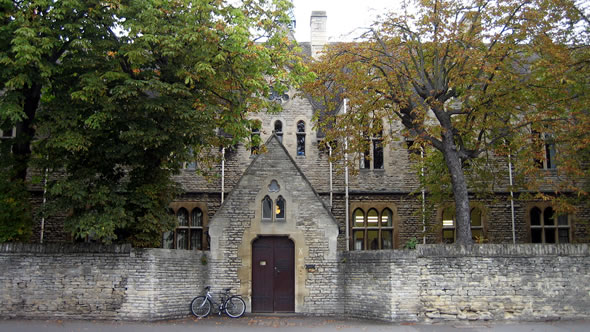Oxford – ESI participates in meeting of the Working Group on the Western Balkans

On 28 October 2011, ESI Senior Analyst Alexandra Stiglmayer participated in a meeting of the Working Group on the Western Balkans in Oxford, UK. She made a presentation on ways how EU conditionality can be reinforced.
Referring to a Franco-German non-paper according to which the two EU member states want to postpone the beginning of accession negotiations with Montenegro to next summer despite a recommendation by the European Commission to open negotiations now, she said that the enlargement process has become difficult and at times arbitrary. For conditionality to work, there must be clear conditions and an attractive reward. While the reward is still attractive, for Western Balkans countries it is not certain whether it is real, and the conditions to get to membership are not always clear. She said the main problem was the long "pre-negotiations phase".
As the example of Croatia shows, real reforms happen during the negotiations, even at their later stage, so it is counter-productive to keep the candidate countries in the waiting room for too long. This postpones the positive transformation of the Western Balkans. It has also led to the EU's losing influence and soft power in the region. Alexandra touched upon all six Western Balkan candidate countries and showed how the EU was losing ground there.
Alexandra made three recommendations to reinforce EU conditionality:
- To launch negotiations with Montenegro now and get all other Western Balkan countries, including Macedonia, to the stage of negotiations as soon as possible. Negotiations are clearly structured, the related conditionality works well, and they produce reforms. They might last a while, but it is more productive to negotiate and implement reforms than to waste time during the pre-negotiations' phase.
- To allow candidate countries that are not yet negotiating to participate in the screening exercise for the negotiating countries. This will signal to the non-negotiating countries that they are truly expected to join one day, and it will familiarise them with the EU acquis.
- To introduce more transparency in the negotiating process, which would allow think-tanks and civil society actors to monitor them and act as watchdogs. It would be ideal if two or more countries negotiated at the same time because direct comparisons would create healthy competition, which was very useful during the visa liberalisation process for the Western Balkans.
The Working Group is an initiative of the Woodrow Wilson International Center for Scholars from Washington DC and the University of Oxford. It brings together experts from the US and the EU to discuss obstacles to enlargement of the Western Balkans, the tools available to international actors in the region, and how they can be best used to reach the goal of integration in the EU. It thus also aims to reinforce transatlantic partnership. The meeting in Oxford was the fifth of the working group and focused on the topic of EU conditionality.
The organisers of this meeting included the Woodrow Wilson International Center for Scholars; the Centre for International Studies of the University of Oxford; and the South East European Studies at Oxford (SEESOX). The meeting was financially supported by the EU Delegation in Washington DC.
Visit ESI's Enlargement Portal for more information about EU enlargement. Papers from the first few meetings of the Working Group on the Western Balkans are available here. The agenda and participants of the fifth meeting can be found here.
